
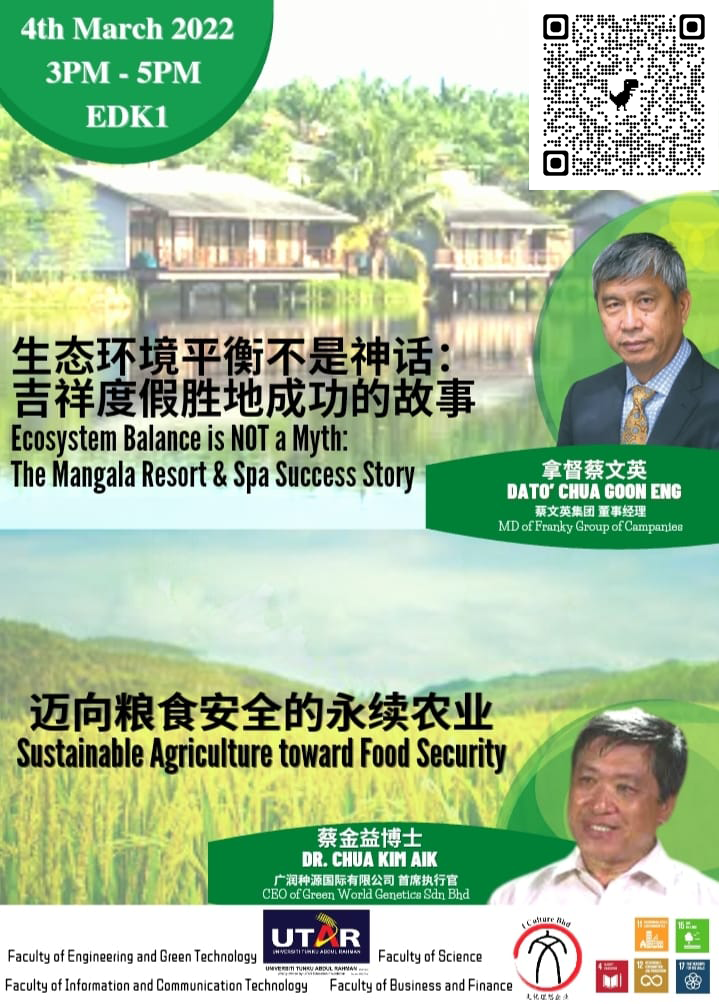
Poster of the event
UTAR Faculty of Engineering and Green Technology (FEGT), Faculty of Science (FSc), Faculty of Information and Communication Technology (FICT) and Faculty of Business and Finance (FBF) collaborated with I Culture Berhad (文化理想企业) to organised two interesting talks regarding agriculture and ecosystem balance on 4 March 2022 at UTAR Kampar Campus. The talks aimed to develop integration and synergy of cooperation between experts from the industry with researchers and students from UTAR. The talk was conducted in both English and Mandarin.
Invited to be the speakers were Franky Group of Companies Managing Director Dato’ Chua Choon Eng who presented a talk titled “Ecosystem Balance is NOT a Myth: The Mangala Resort and Spa Success Story” (生态环境平衡不是神话:吉祥度假胜地成功的故事)in session one, and Green World Genetics Sdn Bhd Chief Executive Officer (CEO) Dr Chua Kim Aik who presented another talk titled “Sustainable Agriculture toward Food Security” (迈向粮食安全的永续农业)in session two. The event was moderated by Master of Arts (Chinese Studies) student Yew Xin Yu.
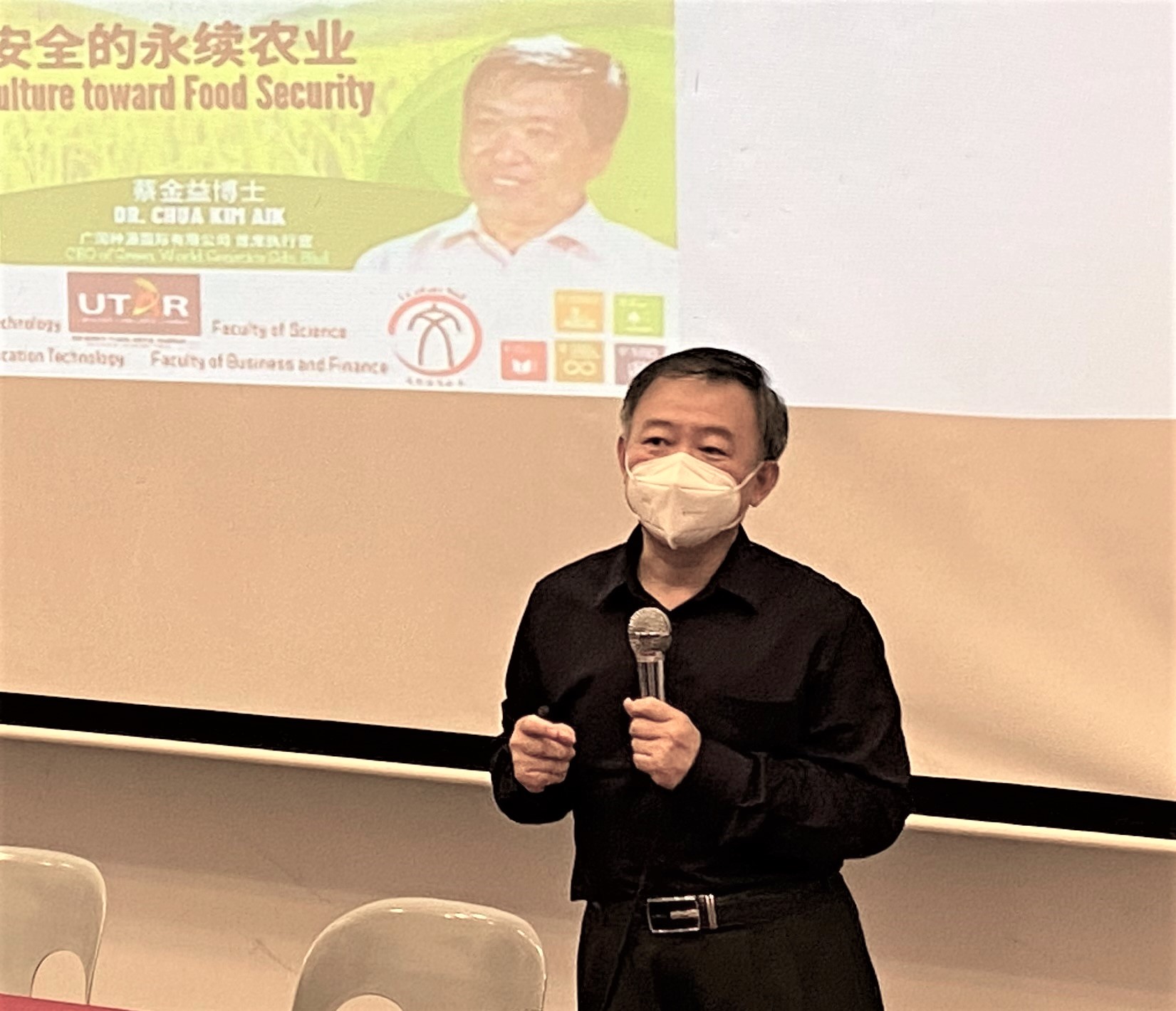
Dr Wong delivering his opening remark
Gracing the webinar with an opening remark was Institute of Chinese Studies (ICS) Deputy Dean Assoc Prof Dr Wong Wun Bin. “Last year when I went to Kuantan, I visited the Mangala Resort and Spa. The moment I reached the resort, I was impressed by the beautiful natural scenery there. Dato’ Chua explained to me how he was able to turn that unoccupied land into an ecologically balanced environment. Dato’ Chua always says ‘We can turn liability to asset’. Thus his efforts in rehabilitating the ex-tin mining land, inspired me to do something for the ex-tin mining lands in Kampar,” said Dr Wong.
He added, “I got to know several farmers in Kampar after the implementation of the Malaysian Movement Control Order (MCO). After liaising with them for several projects under I Culture Sdn Bhd, I decided to do more especially in encouraging and assisting the agricultural development in Kampar. As we know there are many unused ex-mining lands in Kampar, I hope by providing this platform, together we can sort out projects and plans to rehabilitate the lands, and assist in the development of agriculture in Kampar. Today, we have also invited Dr Chua Kim Aik, an expert in the seed industry to share his expertise. Speaking of the collaboration, UTAR Institute of Chinese Studies can help in branding the agricultural products as well as introducing the historical spots in Kampar to the public.”
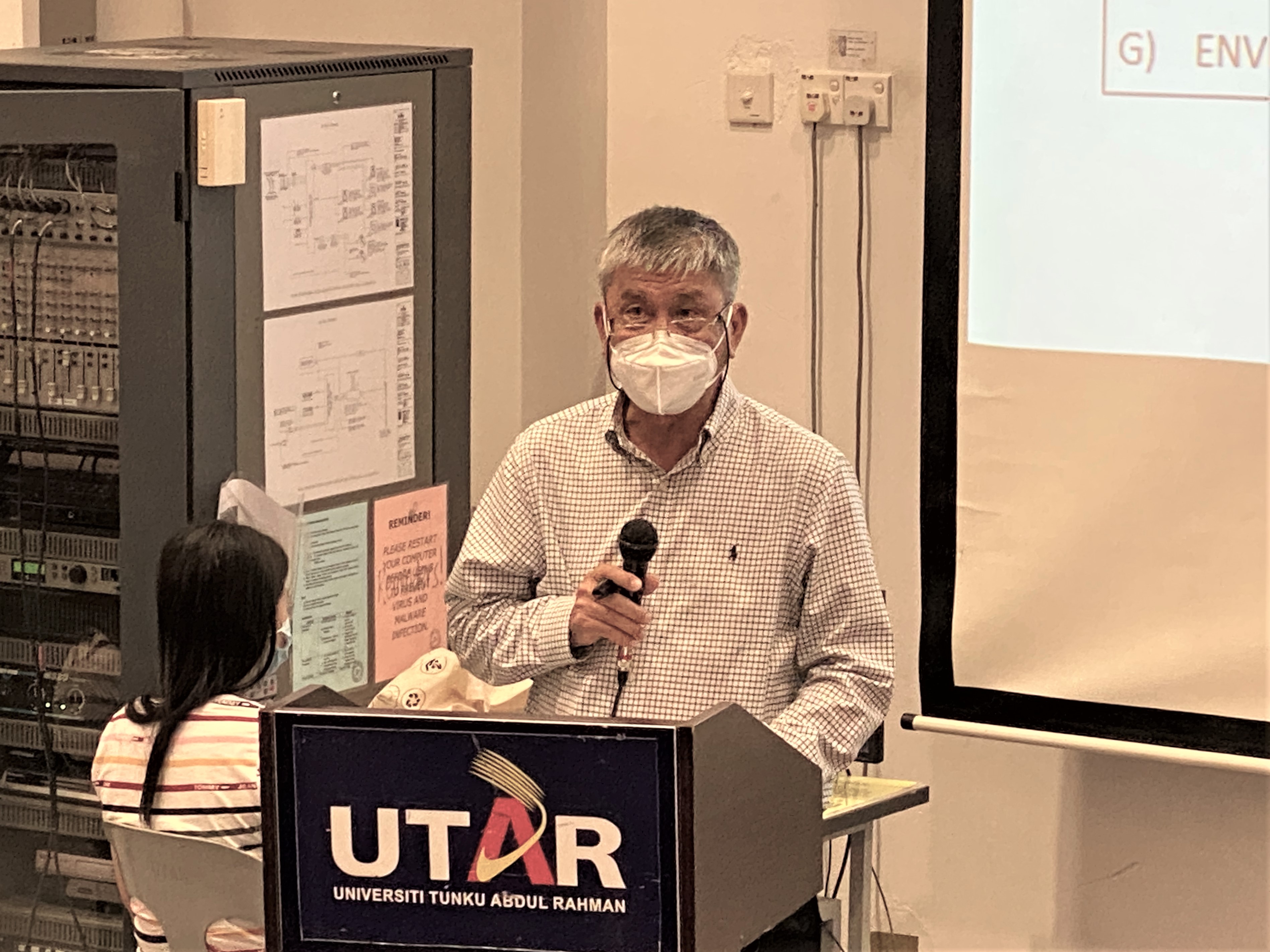
Dato’ Chua during his talk session
In his session, Dato’ Chua shared the history of Mangala Resort and Spa land. “The land history of Mangala Resort and Spa revolves around its original use for tin mining activities from the 1930s till the late 1970s, then for sand mining activities from the late 1970s till the 2000s which had its produce largely supplied to the Kuantan Port. It has since been left completely barren with hundreds of unsightly gullies, ponds and small lakes to occupy the areas. Almost 80 per cent of the land was covered in clay with no topsoil, little sand and hardly any vegetation. In 2002, Mangala Resort and Spa was built within 400 acres of barren ex-mining land as part of an initiative to rehabilitate the site, with 60 acres reserved for the resort’s development.”
While sharing his experience of rehabilitating and transforming the ex-mining land into an ecologically balanced resort, Dato’ Chua said, “Before the rehabilitation, an analysis was conducted on the environmental conditions. The soil conditions of the land were also examined to determine the land’s potency. According to the Malaysia Palm Oil Association (MPOA), the soil conditions of the land we used to build Mangala Resort and Spa were very unfavourable. It is important to check the soil conditions before the development project because if the soil’s condition is bad, there will be limitations in growing plants. So, study the soils and land before you plant anything. In addition, the source of water is critical in building an ecologically balanced resort. If the source of water is insufficient or too much, it will harm the plants. In order to attract the wildlife, you must also seek suitable seeds for plants that can attract wildlife. After putting some efforts on plantations, the Mangala Resort and Spa was able to attract over 90 pieces of birds.”
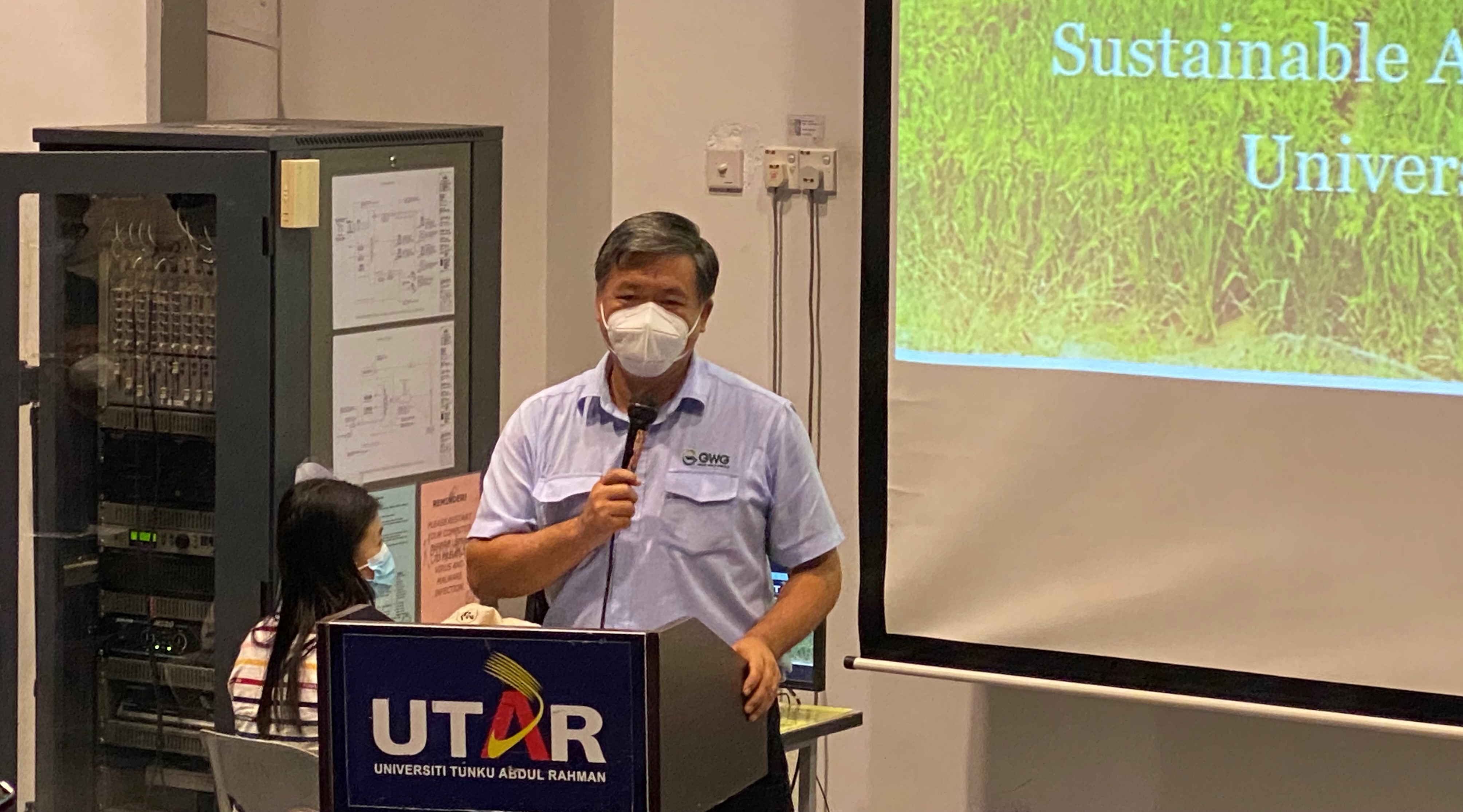
Dr Chua speaking about sustainable agriculture toward food security
On the other hand, Dr Chua highlighted the importance of technology and seeds for sustainable agriculture toward food security. He said, “One of the purposes of food security is ensuring the safety and sufficiency of food. To sustain food production, we need to look into the innovation of technology and business models. In my opinion, the agriculture system in Malaysia needs to be improved from the aspects of productivity, supply chain, the ecosystem as well as the wise use of the land.”
When Dr Chua spoke about the food value chain, he emphasised the research and study of seeds and breeding. “Seed is the fundamentals of the Total Food Value Chain. It is a key component among all inputs for sustainable crop production. It is also estimated that the quality of seed accounts for 20%-25% of productivity. However, not many companies in Malaysia are willing to focus on the research and development of the seeds. Ninety-five per cent of seeds in our country are imported. You can imagine what would happen if the supply chain is affected and there is no supply of seeds from other countries, we will be facing a shortage of food. Our mission now includes striving for self-sufficiency and food security by providing high-quality seeds.”
Toward the end of his sharing, Dr Chua encouraged more students to join the agriculture industry. “The industry farming model has been changed. Due to the changes in the environment, we need people in industrial farming to share resources together. As a result, the capital can also grow bigger by gathering different parties together. With more capital, we can use technology to boost the productivity of agricultural products.” For the fresh graduates in the agricultural field, Dr Chua advised them to start learning breeding and farming knowledge, and also acquire marketing skills.”
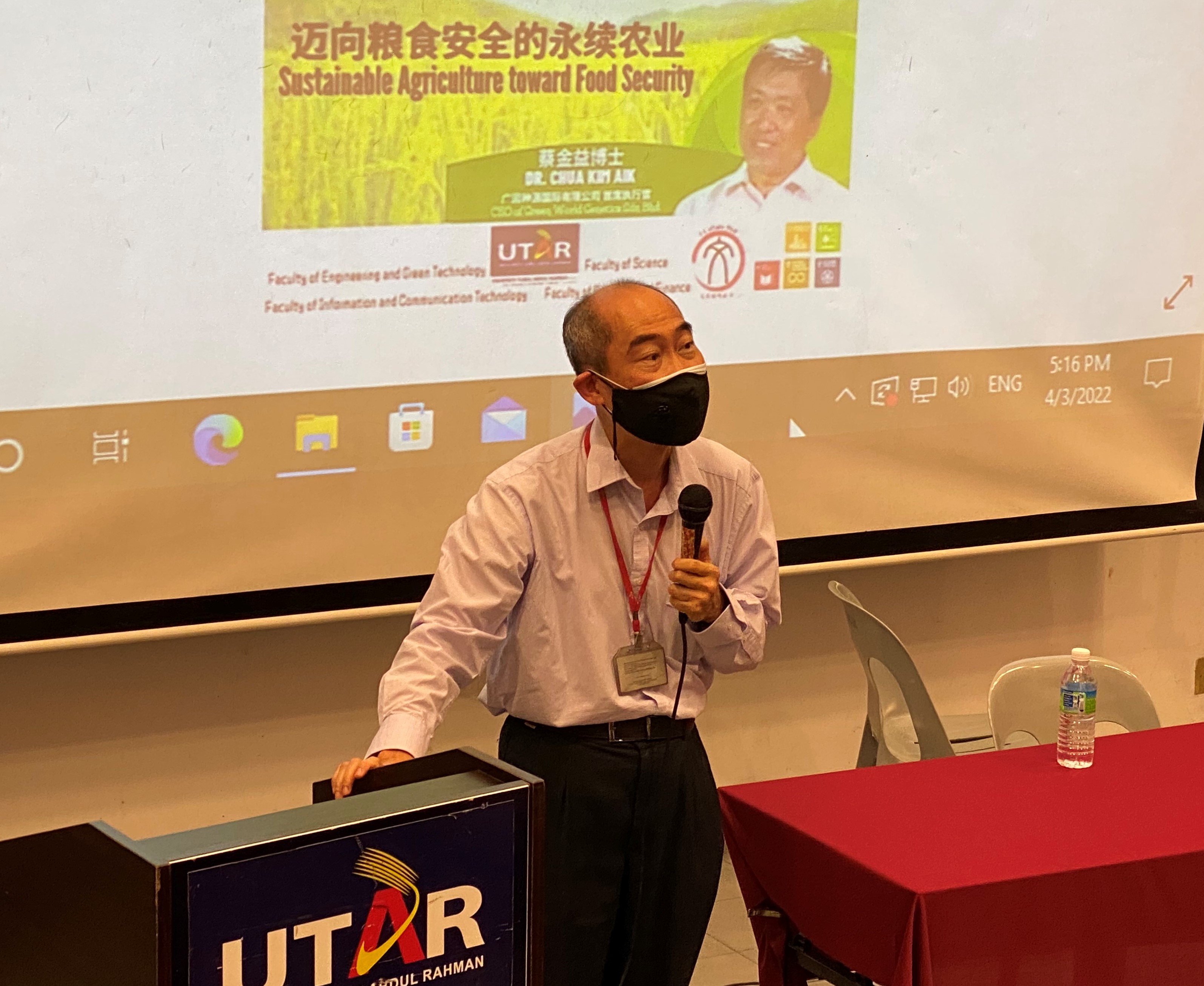
Dr Lim delivering his closing speech
FSc Dean Assoc Prof Dr Lim Tuck Meng was invited to deliver the closing speech. “When we [UTAR] invite outsiders, we would usually get good response, as the community and the industry sector have always been willing to provide their support to us. We hope that this will continue as we target to bring more opportunities to our students and future students. UTAR will continue to participate in these sustainable community projects and education. Thank you for supporting this event, we hope to see you in many other events in the future,” said Dr Lim.
The event concluded with a Q&A session and a group photograph.
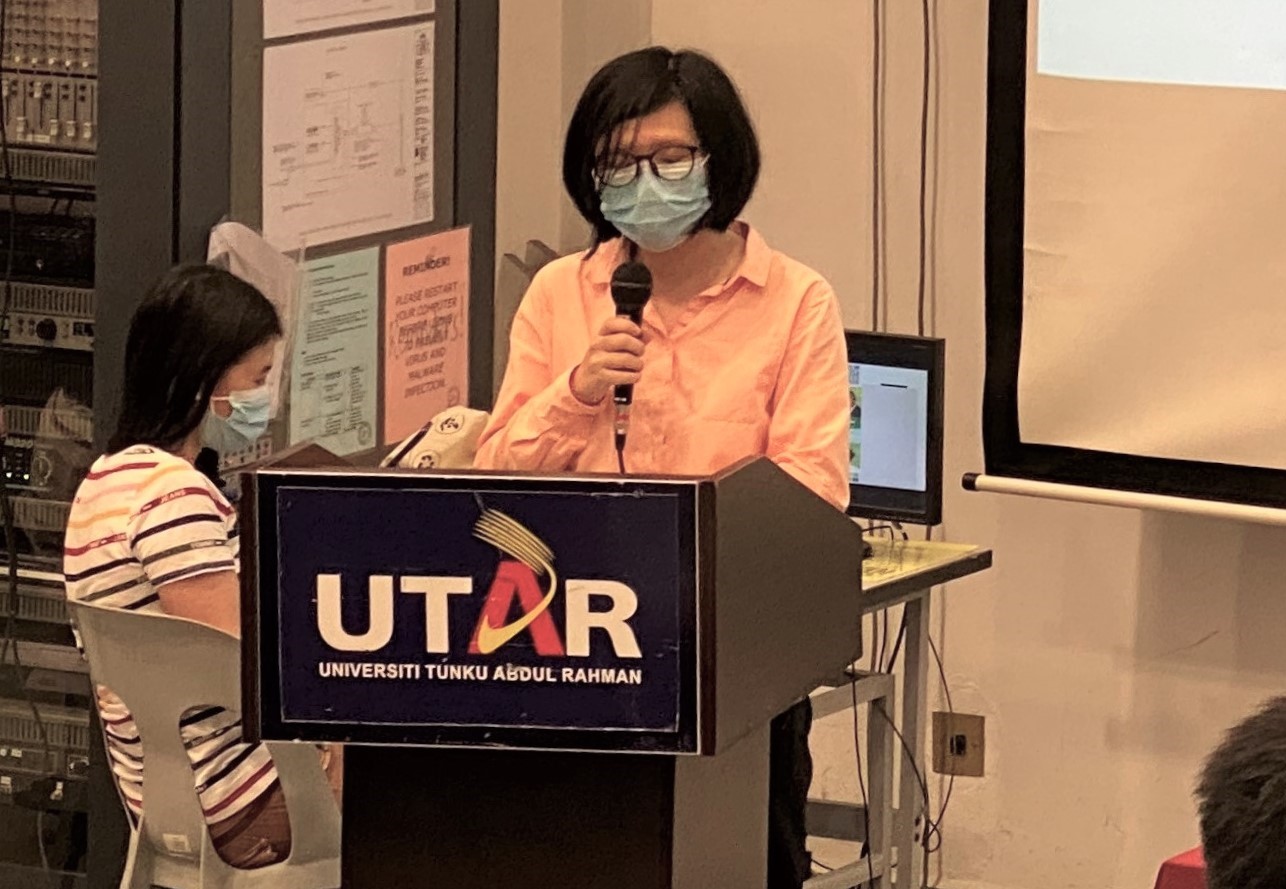
Yew moderating the event
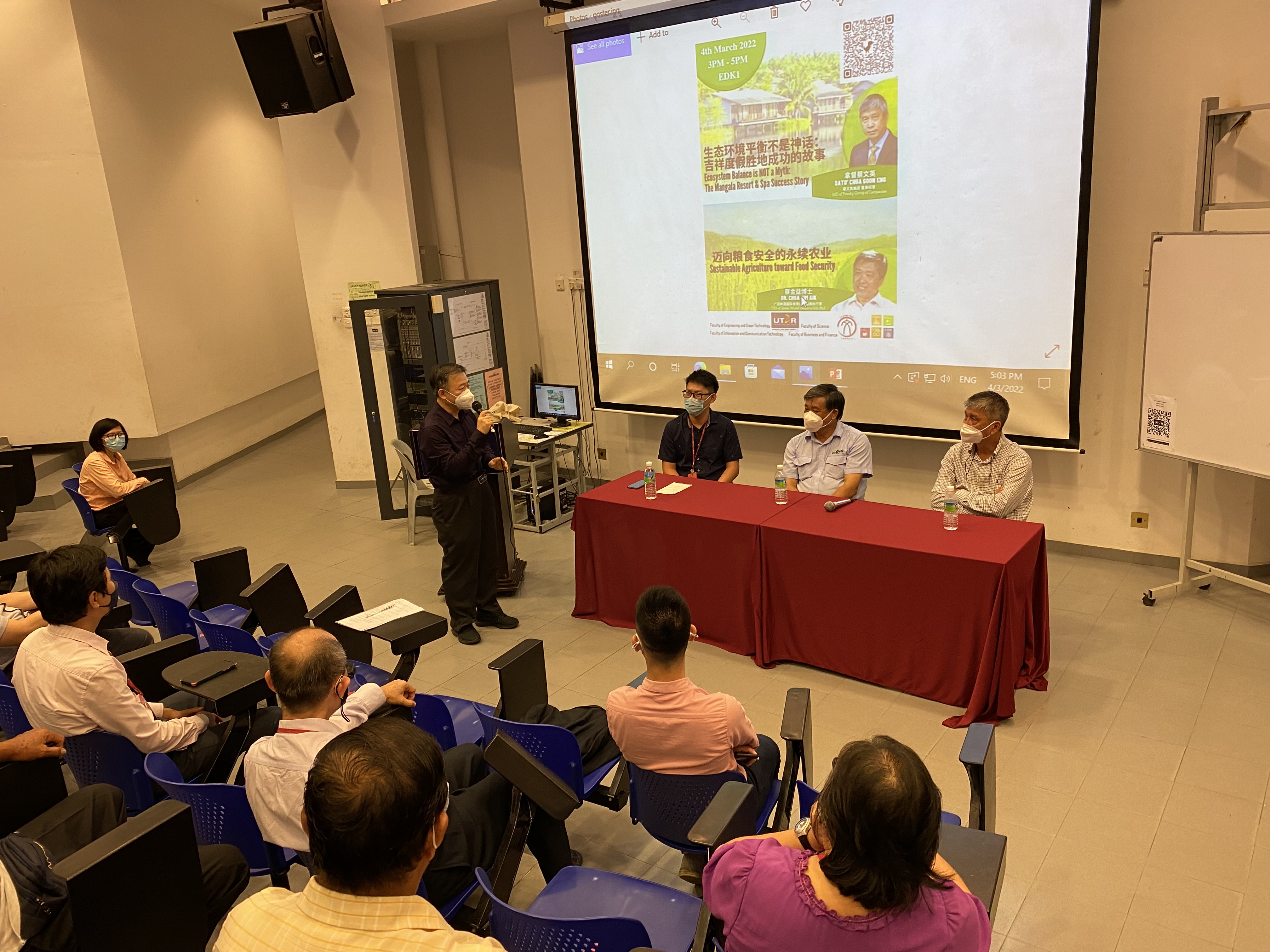
The Q&A session (from left): Dr Wong, FEGT Department of Construction Management Head Dr Kwan Wai Hoe, Dr Chua and Dato’ Chua
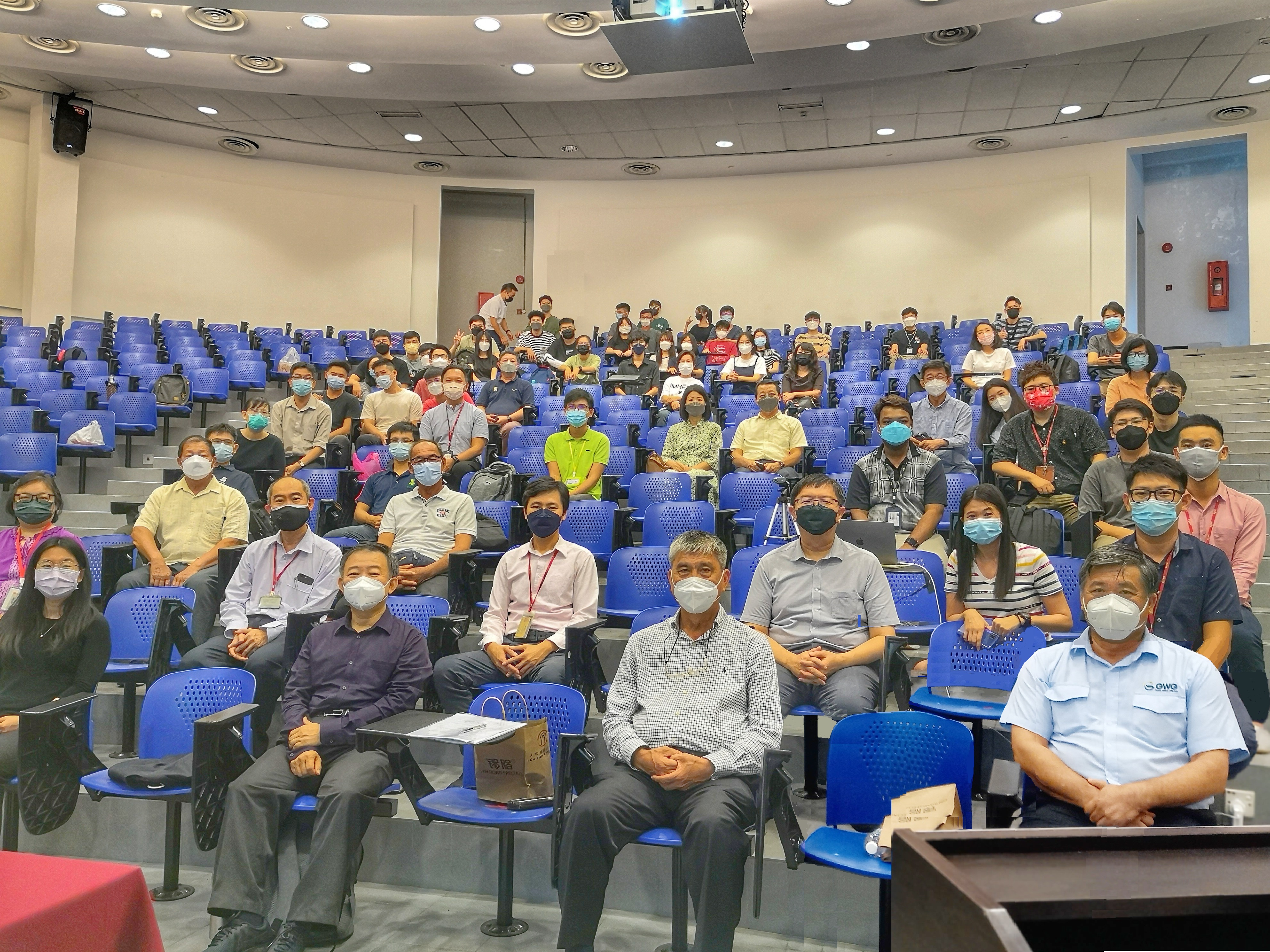
Group photo after the event
© 2022 UNIVERSITI TUNKU ABDUL RAHMAN DU012(A).
Wholly owned by UTAR Education Foundation (200201010564(578227-M)) LEGAL STATEMENT TERM OF USAGE PRIVACY NOTICE